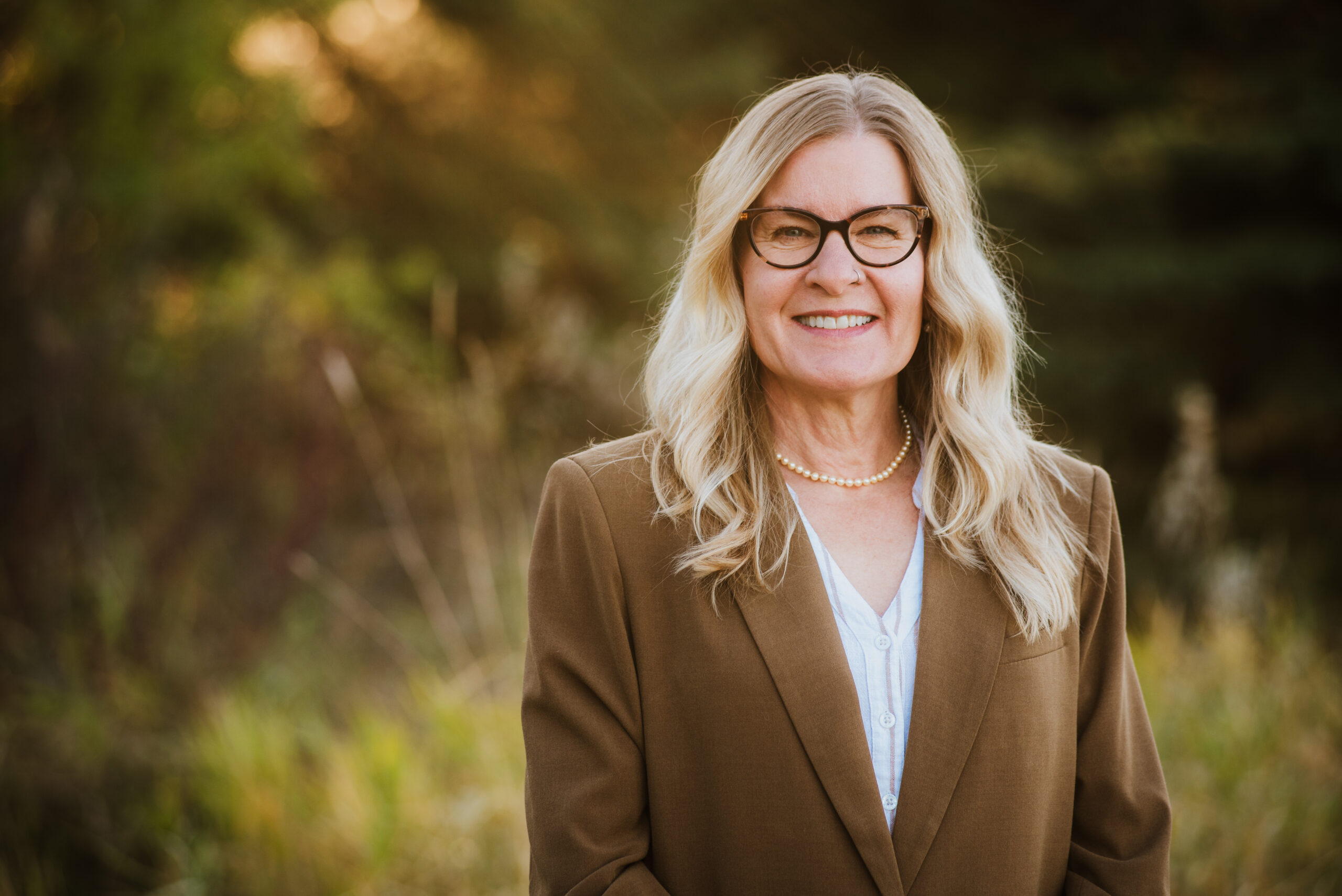I am passionate about public school and community service. When I was in grade nine I became determined to be a teacher. I truly believe that my public school experience provided me with many excellent teachers who helped shape me and supported me to reach many goals, in academics, music and athletics. I had the privilege of a 32 year career as both a classroom teacher, curriculum coordinator and assistant principal with Edmonton Public Schools. My husband and I have resided in our home in Ward B for 29 years, where we raised our family and our sons attended their community schools. I feel a strong connection to my community and Ward B, having attended several of the schools myself.
Statement of beliefs
Public education is at a critical time and needs to be a top priority. I believe that public education is a collective responsibility to ensure that every child in every neighbourhood can access high quality and barrier free education. As trustee, it will be my duty to engage and collaborate with all stakeholders to bring the voice of my Ward to the rest of the board and the superintendent. With years of chronic underfunding, sadly we find ourselves with overcrowded classrooms and limited supports for complex learning needs. This is wrong. Public education needs to serve the public good, creating opportunities for all students to learn, explore, discover and grow to their potential. I believe that collectively we can bring changes to ensure public education can be the institution that we can be proud of as it prepares all learners. The learners of today are our future workers and professionals. Every child deserves every opportunity to thrive in society, meet their potential and aspirations as global citizens, ensuring that they can contribute to a strong democratic society. A strong and supported public education system is a moral imperative.
Priority areas
Robust funding for public education, supporting smaller class sizes and supports for all learners.
Safe, welcoming, accessible and inclusive high quality education for everyone.
Planning for the future. Plan and build to accommodate Edmonton’s unprecedented student growth.
Views on funding
It is distressing that Alberta students receive the lowest per student funding across Canada, and that we have, quite simply, run out of space and have limited supports for students in Edmonton Public Schools. School boards and trustees are limited within the framework of funding provided by the government. With current inadequate funding for much needed infrastructure and a lack of supports for complex learning needs, it is the board’s role to lobby municipal and provincial governments on education issues. This includes advocating for public tax dollars to be spent on public school. Current funding that supports and promotes private and charter schools erodes from funding that could and should be supporting public schools. Unlike public education, these institutions are not inclusive and accessible to all, do not operate under the same accountability framework as public schools and create divisiveness in communities, under the guise of choice.
How learning conditions can be improved
Learning conditions in our schools must be a priority. As I campaign across Ward B, parents are deeply concerned about their child’s class sizes, limited time with their teachers, as well as the time spent traveling to a school outside of the neighbourhood because their community school is full. With Alberta receiving the lowest per student funding in all of Canada, our public education system does receive adequate funding to support unprecedented student population growth, learning needs of today’s classroom and reasonable class sizes. Teachers are doing the best they can in unreasonable teaching and learning conditions, but it is not sustainable, and we are seeing that now as Alberta teachers have voted strongly in favour of job action. Teachers, educational assistants and support staff all want their students to feel encouraged, excited about learning, happy, safe and successful. Recent ministerial orders are only serving to create chaos and confusion for parents and students.
How trustees and school boards can best support teachers
Trustees and school boards need to advocate for high quality teaching and learning spaces by listening to what teachers are saying. They are trained and educated professionals who understand pedagogy, teaching strategies, learning styles, child development, individual needs, curriculum outcomes and ultimately have an important relationship with every child they teach. Creating and supporting effective teaching and learning spaces and opportunities will bring positive outcomes for students and give teachers the satisfaction that they can accomplish their best work. Teachers need to be and feel seen, heard, valued and supported. It is imperative that that teachers be given the opportunities to be involved in consultation processes that affect their working conditions and their student’s learning conditions. It is important to set policies that prioritize teacher well-being. A culture built on respect for teachers will foster a climate conducive for teachers to do their best work.
Views on the new K-6 curriculum
Considering limited consultation with teachers, the new K-6 curriculum falls flat in many ways, not fully supporting the learners of today. In speaking with teachers/colleagues and parents on the door steps, I hear concerns about age appropriate learning outcomes, misaligned with child development research. In several areas there is reliance on memorization of facts, rather than critical thinking; an imperative skill as students need to discern information and make informed decisions in their fast paced ever-changing world. The ATA and S.O.S. (Support our Students) have both indicated inadequate representation of diverse identities and cultures, particularly First Nations, Métis and Inuit peoples. Curriculum should include the atrocious history of residential schools, and the effects of colonization on Indigenous peoples. With a significant focus on colonial Eurocentric themes, this contradicts the commitment to Truth and Reconciliation calls to action related to education.

